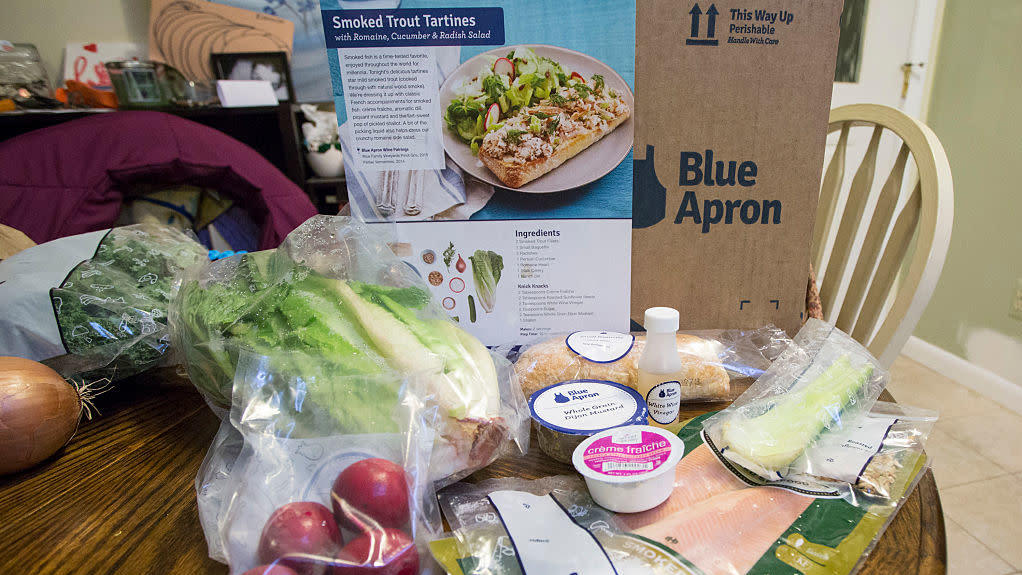This Pandemic Might Just Be The Lifeline Blue Apron Needed
Look, I might have ignored my father's persistent advice and neglected to take intro to econ, but I can tell you one thing: the coronavirus is bad for the American economy. Well, most of the economy. Blue Apron, the home delivery meal kit service for millennials who hate making shopping lists, appears to be benefiting from the crisis. The company's stock has skyrocketed since the viral outbreak, as investors guess that "social distancing" will keep Americans away from the grocery store.
If grocery delivery is a lifeline for quarantined people, the mass quarantine has been a lifeline for Blue Apron. We just reported last month that the food delivery service was potentially up for sale—it had recently reported a 30% drop in sales, and their stock is down 97% since it went public in 2017. Meanwhile, according to Forbes, a survey found a third of consumers used online grocery delivery last week; two-thirds of that subset had never shopped for groceries online before. That doesn't totally explain why HelloFresh's stock has only gone up 11% to Blue Apron's 70% on Tuesday—perhaps name recognition? But the boom falls in line with rising stocks of other stay-at-home brands like Peloton and the increase of ecommerce purchases on the whole.
So, perhaps the meal kit is a pandemic-friendly business model, and let's assume the number of Blue Apron-ers does rise in the coming months. What happens once this is all over? Will we all be hooked on our meal kits, never to return to a grocery store ever again? Or will we be so desperate to select our own produce that America will forever turn its back on the era of the meal kit?
